Best movies like Im Niemandsland
A unique, carefully handpicked, selection of the best movies like Im Niemandsland Starring Emilie Neumeister, Ludwig Simon, Andreas Döhler, Lisa Hagmeister, and more. If you liked Im Niemandsland then you may also like: Rabbit à la Berlin, Kuhle Wampe or Who Owns the World?, Good Bye, Lenin!, Goodbye Berlin, Biology! and many more popular movies featured on this list. You can further filter the list even more or get a random selection from the list of similar movies, to make your selection even easier.
It's the summer of 1990, two teenagers in Germany fall in love - an innocent first love, shortly before the German reunification. Katja (16) is from West-Berlin, Thorben (17) from GDR. Their families are fighting over a house in Kleinmachnow (a suburb of East-Berlin), where Thorbens family has been living since the 70ies, but where Katjas father grew up. The family had to emigrate to West-Berlin in 1961, just before the Berlin Wall was built. Later, the house was dispossessed under GDR-rule. Now, Katjas father demands restitution. The conflict grows bitterer and threatens to tear apart both families. It is about old wounds and new prejudices. While being in the middle of Germanys swiftly progressing process of reunification, Katja and Thorben have to fight for their love.
You may filter the list of movies on this page for a more refined, personalized selection of movies.
Still not sure what to watch click the recommend buttun below to get a movie recommendation selected from all the movies on this list
Kuhle Wampe or Who Owns the World?
Kuhle Wampe takes place in early-1930s Berlin. The film begins with a montage of newspaper headlines describing steadily-rising unemployment figures. This is followed by scenes of a young man looking for work in the city and the family discussing the unpaid back rent. The young man, brother of the protagonist Anni, removes his wristwatch and throws himself from a window out of despair. Shortly thereafter his family is evicted from their apartment. Now homeless, the family moves into a garden colony of sorts with the name “Kuhle Wampe.”
Good Bye, Lenin!
Alex Kerner's mother was in a coma while the Berlin wall fell. When she wakes up he must try to keep her from learning what happened (as she was an avid communist supporter) to avoid shocking her which could lead to another heart attack.
Goodbye Berlin
While his mother is in rehab and his father is on a 'business trip' with his assistant, 14-year-old outsider Maik is spending the summer holidays bored and alone at his parents' villa, when rebellious teenager Tschick appears. Tschick, a Russian immigrant and an outcast, steals a car and decides to set off on a journey away from Berlin with Maik tagging along for the ride. So begins a wild adventure where the two experience the trip of a lifetime and share a summer that they will never forget.
Biology!
A small town shortly before the end of the GDR: 15-year-old Ulla lives with her mother in a dilapidated old building where not even the electricity works properly. Economy of scarcity and national bankruptcy are visible everywhere. Only higher party comrades live in the lap of luxury. When Ulla meets Winfried after a summer bathing trip, the two fall in love. Winfried is the son of an influential general director and owns things from West Germany that others only dream of: a computer, a games console, a walkman. On an excursion with her biology class, the high school student discovers that a dacha is being built in the middle of the nature reserve and the creek has been dammed. Winfried's father turns out to be the culprit, but the mayor is on his side. Ulla rebels against this environmental destruction connected to political corruption and organizes a protest. Her activism not only endangers her own future, but also her first great love.
The Promise
East-Berlin, 1961, shortly after the erection of the Wall. Konrad, Sophie and three of their friends plan a daring escape to Western Germany. The attempt is successful, except for Konrad, who remains behind. From then on, and for the next 28 years, Konrad and Sophie will attempt to meet again, in spite of the Iron Curtain. Konrad, who has become a reputed Astrophysicist, tries to take advantage of scientific congresses outside Eastern Germany to arrange encounters with Sophie. But in a country where the political police, the Stasi, monitors the moves of all suspicious people (such as Konrad's sister Barbara and her husband Harald), preserving one's privacy, ideals and self-respect becomes an exhausting fight, even as the Eastern block begins its long process of disintegration.
Learning to Lie
18-year-old school boy Helmut falls in love with fellow pupil Britta. He starts working for a Peace movement to get to know Britta. Britta, however, suddenly moves to San Francisco to live with her father and whilst there, finds a new boyfriend. Helmut studies, literature and politics in his home town and have a relationship with another girl from his former school, now studying medicine at the same university but they break up after having an affair with her roommate. Helmut begins a lot of short affairs with different women but still searches for his first girl.
Berlin Blues
In October 1989, the part of the West Berlin borough of Kreuzberg called SO 36, had been largely shut off by the Wall from the rest of the city for 28 years. A lethargic sub-culture of students, artists, bohemians and barflys had flourished among crumbling buildings. Part of that microcosm is barkeeper Frank, semi-formally called 'Herr Lehmann' by friends and patrons. He hangs out drinking, sports utter disregard for anything beyond SO 36 and lazily pursues an affair with cook Katrin. His lifestyle is gradually disturbed, when his parents show up for a visit, things go awry with Katrin and his best friend Karl starts to act strange. Meanwhile, political turmoil mounts on the other side of the Wall.
In a Land That No Longer Exists
It's 1989 in East Berlin: Suzie is kicked out of school shortly before she graduates from high school and has to defend herself as a worker in the cable factory. However, a randomly taken photo leads them to the fashion world of the GDR. The editor-in-chief Elsa Wilbrodt put them on the cover of Sibylle, the fashion magazine of the GDR. In the Berlin underground scene she made the acquaintance of the gay fashion designer Rudi and the photographer Coyote. Suzie must decide if she's brave enough to leave the old strands behind forever.
Beloved Berlin Wall
Berlin, 1989. Sascha is a young East German border guard and Franzi is a lively young West German woman who's just moved into a flat next to Sascha's watchtower at the Berlin Wall. It takes only a slight mishap and a selfless act of chivalry and the two fall in love. But soon the Stasi believes they are witnessing the start of a revolt. This is the time of mass protests and East Germans taking refuge in the West German embassy in Prague after all. Franzi and Sascha have to find their ways to stand up for their love and strive for the impossible; to bring down the wall.
Two Lives
Europe 1990, the Berlin wall has just crumbled: Katrine, raised in East Germany, but now living in Norway for the last 20 years, is a “war child”; the result of a love relationship between a Norwegian woman and a German occupation soldier during World War II. She enjoys a happy family life with her mother, her husband, daughter and granddaughter. But when a lawyer asks her and her mother to witness in a trial against the Norwegian state on behalf of the war children, she resists. Gradually, a web of concealments and secrets is unveiled, until Katrine is finally stripped of everything, and her loved ones are forced to take a stand: What carries more weight, the life they have lived together, or the lie it is based on?
Gundermann
The real life story of East German singer and writer Gerhard Gundermann and his struggles with music, life as a coal miner and his dealings with the secret police (STASI) of the GDR.
The German Chainsaw Massacre
Taking place around the German reunification of 1990, a group of East Germans cross the border to visit West Germany and get slaughtered by a psychopathic cannibal family who want to turn them into sausages.
Promising the Moon
Throughout her life Marga has shown little feeling for her daughter Sofia. But now she reveals fear, wounds and a deep longing for her long-deceased husband Juris. She becomes increasingly lost in her forgetfulness and suddenly demands, like a child, gentleness. It’s an uncomfortable situation for Sofia who must now take care of her mother. Sofia’s growing realization that Marga’s past also affects her own gives Sofia impetus to make a sudden journey with her mother to Riga. This is where Marga grew up and where she married Juris. But the more Sofia learns about her mothers, the less clear it becomes who she herself is.
Heroes Like Us
A young man from an early age falls in love with a girl whose family is not in good standing with the ruling Communist party. His father however is a member of the "Stasi", the secret state police. The father not only hinders his son's relationship with the girl, but he arranges for his son, after finishing school, to become a Stasi spy himself.
Alles Lüge
Erich Kasulke and Rudolf Portmann are comedian stars of the former GDR. When the Wall falls, so does their success. Portmann becomes a successful businessman, while Kasulke tries to continue working on the comedy circuit - without success. When his wife also cheats on him, he decides to start a new life in Berlin. There he quickly meets his old friend Portmann, who has built up a huge company. He offers him a job. But Erich puts the entire company in danger...
Meier
Meier, a paperhanger in East Berlin, inherits from his father in West Berlin. With this money he wants to fulfil himself the dream of his life: a journey around the world. He buys a forged West German passport and pretends to go on a trip to Bulgaria while he really is off to see the free world. When he wants to return to East Berlin he finds himself in an unbelievable predicament and his double life begins. He can't keep away from his East German friends. As with all the best comedies, the action builds up to an eventual crisis. It's a light comedy, which won several national Film Academy Awards. The film is very political, with lots of political jokes/innuendos which only Germans will understand. One is left feeling what a total obscenity that stupid Wall was, dividing one people for 30 years (1-2 Generations) simply by the coincidence on where you just happen to be in the early morning on the 13th August 1961.
Russendisko
Three young Russian friends, who move from Moscow to Berlin in a lucky wave of emigration right after the fall of the Berlin wall. They take their chance looking for a better life and find themselves involved in the tales of everyday lunacy on the streets of Berlin and its spirit of the early nineties.
The Wall: A World Divided
Documentary that explore the origins and demise of the notorious Berlin Wall, the structure's affect on ordinary German lives and the peaceful end to the Cold War. Full of detailed information, this historical PBS documentary explains the stark differences between East and West Germany and their process of reunification.
Last Year Titanic
Director Andreas Voigt interviewed people of different ages and social backgrounds about their experiences after the fall of the Berlin Wall. He paints an important picture of this historic period in German history, filled with radical social and economic change and insecurity. Last Year Titanic was shot from December 1989 through December 1990 — the last months of the GDR and the first months in united Germany.
Tunnel to Freedom
13 August 1961: the GDR closes the sector borders in Berlin. The city is divided overnight. Escape to the West becomes more dangerous every day. But on September 14, 1962, exactly one year, one month and one day after the Wall was built, a group of 29 people from the GDR managed to escape spectacularly through a 135-meter tunnel to the West. For more than 4 months, students from West Berlin, including 2 Italians, dug this tunnel. When the tunnel builders ran out of money after only a few meters of digging, they came up with the idea of marketing the escape tunnel. They sell the film rights to the story exclusively to NBC, an American television station.
Reunification in the Ice: The Story of the Last GDR Antarctic Explorers
In 1989, thirteen GDR scientists and technicians set off from East Berlin to the Georg Forster research station in the Antarctic. During their expedition the Berlin Wall fell on November 9th. Cut off from the images that go around the world, the men can only experience the historical events passively. When they returned in the spring of 1991, their homeland was a foreign country. The documentary reconstructs the thoughts and feelings of the East German researchers on the basis of eyewitness accounts, diary excerpts, letters, film material, grandiose landscape shots from the location of the action and unique photos to make the consequences of the events tens of thousands of kilometers away on the small GDR expedition in the middle of the eternal ice tangible.
Berlin Escape Artists
An ideological and physical barrier fell on 9 November 1989 in Berlin. For 28 years, this 155 km wall divided Germany in two, separating friends and family. The recent discovery of some documents reveals the stories of those who managed to escape to join their loved ones, or simply to regain their freedom. Demonstrating imagination and courage, some dug tunnels to get under the Berlin Wall, others inflated balloons to fly over it, while others disguised themselves with fake uniforms. By combining archives, reconstitution sequences and intrigue scenes, this documentary plunges us into a Berlin that has now disappeared, through the prism of the art of escape under the GDR.
After the Wall: A World United
The Berlin Wall came down in 1989, bringing the reunification of Germany and an end to the Cold War. This documentary revisits the events surrounding the wall's historic collapse. Interviews with George Bush, Mikhail Gorbachev and Helmut Kohl offer insight into political maneuvering while firsthand accounts from Germans provide personal perspectives of this historic event that changed the world forever.
3 1/2 Hours
August 13, 1961: The passengers on the interzonal train from Munich to East Berlin learn 3½ hours before crossing the border that the Wall is being built in Berlin. They have 3½ hours to make a life-changing decision: to get off the train or keep going.
Escape from East Berlin
East Berlin, shortly after the construction of the Berlin Wall. Kurt Schröder and his family dig a tunnel to escape to West Berlin as they struggle to overcome the obstacles blocking their underground path to freedom.
Führer Ex
Ingo Hasselbach, whose parents were Communist Party members in East Germany during his childhood, has lived at both ends of the political seesaw. The question of how people reach a change of heart is a profound one; Hasselbach describes the external forces that led to his founding Germany's first neo-Nazi political party and the internal ones that led him away from it five years later.
Eastern Cross
OSTKREUZ tells the episodic story of 15-year-old Elfie, who literally and metaphorically inhabits a no-man’s-land between the two Germanies shortly after the fall of the Berlin Wall. The film deploys a neorealist aesthetic to reinforce the difficulties confronting the girl, and by inference, Germany.
No Place to Go
Flanders, a famous female author, travels in 1989 after the fall of the Berlin wall into the German capital. She is deeply depressed by the events because she saw the communist state as a very good thing that has now ended. In the joy of these days she finds no one to understand her, so she has to travel back to Munich. After meeting several people, known and unknown, it seems as if there will be no way to go.
Never Mind the Wall
Germany 1982: The country is divided into two parts. Nele, coming from West-Germany, travels to East-Germany where she meets Captain, singer of a band. They fall in love with each other, but the regime "takes care" of their relationship, meaning: They can not see each other again. Germany 1990: The country is reunited. Nele starts searching their lost love...
Berlin is in Germany
When Martin, a former GDR citizen, is released from jail, he lately becomes confronted with the consequences of the German re-unification.
Beyond the Wall
During the Cold War, Ulrich and Heike Molitor's attempt to escape from the GDR with their children hidden in the car ends in a prison conviction and both kids going to adoption unless they accept to leave daughter Rebecca behind to that fate and choose 'exulsion' with son Klaus. When the kids near adulthood, Klaus is frustrated that his parents only wine about his lost sister. Meanwhile, the time is ripening for the Berlin wall to come down. Rebecca's adoptive pa resists his wife's bitching to leave the Stasi.
Zwischen uns die Mauer
In 1986, Anna from West Germany and the GDR citizen Philipp meet at a church youth exchange in East Berlin. It's love at first sight. But it is also an impossible love, because between them stands the wall.
Chronicle of a Summer
In the late fifties a large industrial complex was built near Schwedt, in the GDR. This low budget film tells about the voluntary participation of the brigades of the Freie Deutsche Jugend in the building up …
Jedes Jahr im Juni
Each year in June, Bavarian housewife Elke Richter visits family in Halle, in the GDR. There she meets family friend Gregor Pohl, a married carpenter, and they begin having an affair. After her family stops the annual visits due to the husband's promotion in the communist regime, the adulterous couple arranges to meet on other holidays. After Gorbachev's Glasnost leads to the fall of the Iron Curtain, everything changes, and Gregor chooses to emigrate to Canada.

















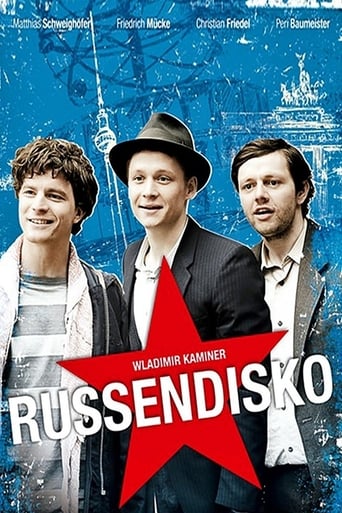

















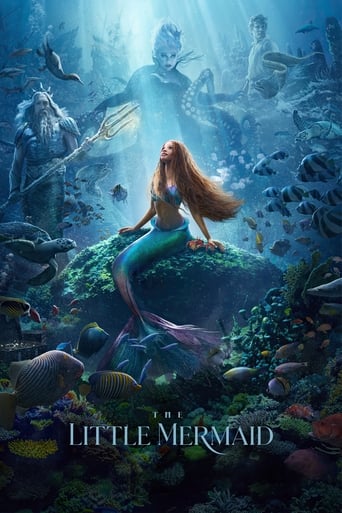



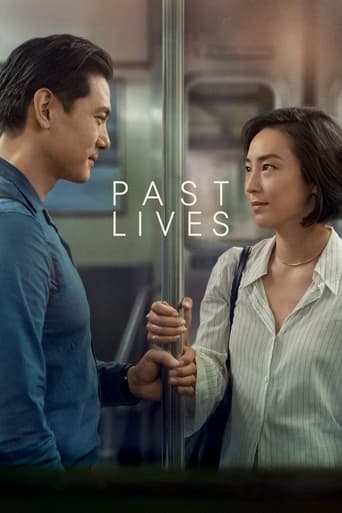


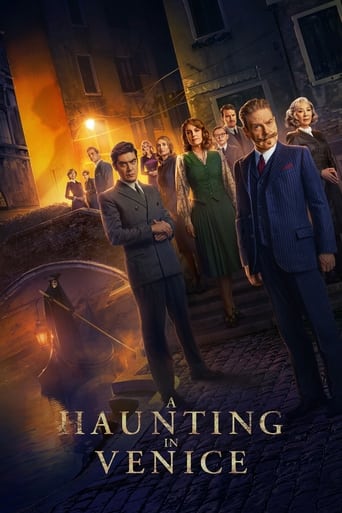
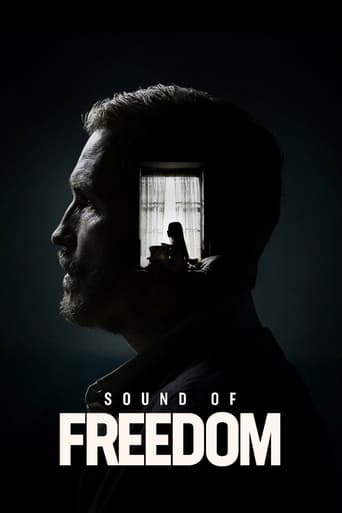
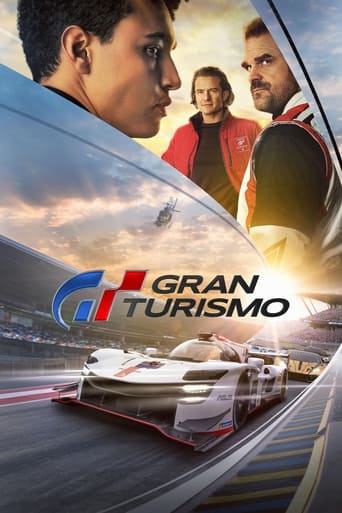
Rabbit à la Berlin
The untold story about wild rabbits which lived between the Berlin Walls. For 28 years Death Zone was their safest home. Full of grass, no predators, guards protecting them from human disturbance. They were closed but happy. When their population grew up to thousands, guards started to remove them. But rabbits survived and stayed there. Unfortunately one day the wall fell down. Rabbits had to abandon comfortable system. They moved to West Berlin and have been living there in a few colonies since then. They are still learning how to live in the free world, same as we - the citizens of Eastern Europe.